KATHMANDU: Seven Terai-Madhesh-centric political parties—some supporting the current government led by the Nepali Congress and CPN-UML, and others in opposition—have joined hands to form a new alliance called the Federal Democratic Front.
The front was launched last week on Thursday with the stated goal of protecting and strengthening Nepal’s federal democratic republican system.
At a formal event held in Thapagaun, Kathmandu, the parties declared the formation of the alliance. The parties include the Dr. CK Raut-led Janamat Party, Upendra Yadav-led Janata Samajwadi Party (JSP) Nepal, Mahantha Thakur-led Loktantrik Samajwadi Party (LSP) Nepal, and Ranjita Shrestha-led Nagarik Unmukti Party (NUP).
Also part of the Front are Rajendra Mahato’s Rastriya Mukti Party, Hridayesh Tripathi’s Janata Pragatisheel Party, and the Terai Madhesh Loktantrik Party (Tamlopa) led by Brisesh Chandra Lal.
While the presidents of all the member parties—except for NUP’s Ranjita Shrestha—were present at the announcement, Shrestha was represented by Maniram Bhandari due to an ongoing party meeting in Kailali.
The formation of this new Front has raised questions about its necessity, especially considering some of the member parties had previously supported the KP Sharma Oli-led government, which enjoyed near two-thirds majority support.
Explaining the rationale, JSP Nepal Chairman Upendra Yadav told Khabarhub, “We have formed this front to institutionalize and safeguard federalism, republicanism, and inclusiveness.”
Khabarhub also spoke with Keshav Jha of the Rastriya Mukti Party to understand the motives behind the move. According to him, there are three key reasons:
To strengthen democratic opposition:
Jha argued that when the two largest parties—Nepali Congress and UML—form a coalition government, it weakens the opposition and, consequently, democracy itself.
“A weak opposition means the voice of the people, especially the marginalized, is suppressed. This front aims to ensure a strong and visible opposition,” he said.
To advocate for constitutional amendment:
He noted that both Congress and UML have discussed constitutional amendments and even formed a task force to this end.
“We have long maintained that the constitution is incomplete. There was concern that our voices might be excluded in this process. The front aims to establish our role and push for necessary amendments,” Jha explained.
To defend the Federal Democratic Republic:
According to Jha, the federal democratic republican system is under attack from regressive and monarchist forces. “This front is essential to counter those attacks and to reinforce the system of governance that we believe is best suited for Nepal,” he stated.
Will the Federal Democratic Front Endure?
Given the historical trend of frequent splits and rivalries among Tarai-Madhesh-centric parties, questions remain about the front’s longevity. These parties have often treated each other as competitors, engaging in prohibitive politics.
However, JSP Chairman Yadav believes there’s no alternative. “It’s never too late to unite or to separate. These processes go on,” he said. “But this time, there is no option but to move forward together.”
Keshav Jha also acknowledged that past collaborations among these parties have often been short-lived. Yet, he pointed to historical moments of unity during times of crisis, especially when people’s voices were being suppressed.
He recalled how these parties had united during the constitutional amendment process that redefined the country’s map. “Whenever the issue is strong or the system is in danger, we have come together,” he said.
Commitment to sustain the Front
The parties involved in the Federal Democratic Front have agreed to advance only those issues on which there is unanimous consensus. For now, all seven Tarai-Madhesh-centric parties appear committed to ensuring the longevity and effectiveness of the alliance.
The member parties have pledged not to repeat past mistakes, instead learning from them and moving forward with renewed unity. “This should be long-lasting. We are committed to avoiding the errors of the past,” said Keshav Jha, leader of the Rastriya Mukti Party.
To ensure the front’s sustainability, the parties have drafted a code of conduct that emphasizes decision-making through consensus, respectful discourse, and a commitment to refrain from public criticism or slander of one another.
At the same time, they have agreed that ideological or theoretical differences can be expressed freely, and member parties are free to engage in other alliances or merge with other political forces—as long as such actions do not contradict the front’s goals.
“We’ll carry forward only those issues on which there is common understanding,” said Jha. “Each party remains free to pursue its individual agenda outside of the front. The key is to find shared ground and work collectively on that.”
Exclusion of communist parties
Despite being focused on the Tarai-Madhesh region, certain parties have been excluded from the Federal Democratic Front, including the Ashok Rai-led Janata Samajwadi Party (JSP) and the Aam Janata Party led by Prabhu Sah—both currently aligned with the ruling coalition.
JSP Nepal Chairman Upendra Yadav criticized their alignment with the UML. “They’re heading towards UML. What’s the point in including them?” he said.
Keshav Jha echoed this sentiment, particularly regarding Sah’s ideological stance. “Prabhu Sah is a hardcore communist. We haven’t held any dialogue with him. We haven’t given space to communists in this front.”
However, there seems to be a nuanced view regarding Ashok Rai. While Yadav cited ideological divergence, Jha said there had been efforts to bring Rai into the fold. “We collaborated with Ashok Rai for the past six to seven months. He backed out for now, citing his position in government. But we may cooperate again in the future,” Jha explained.
The alliance also left out Dr. Amaresh Kumar Singh, an independent MP from Madhesh Province. According to Jha, Singh showed limited interest in identity and rights-based issues.
“He still carries the mindset of a big party, having come from the Nepali Congress. That’s why he’s not part of the front,” he added.
Nevertheless, Yadav emphasized that apart from Ashok Rai’s faction, the front remains open to including other parties and individuals in the future. “We’ll bring others in at the right time,” he stated.


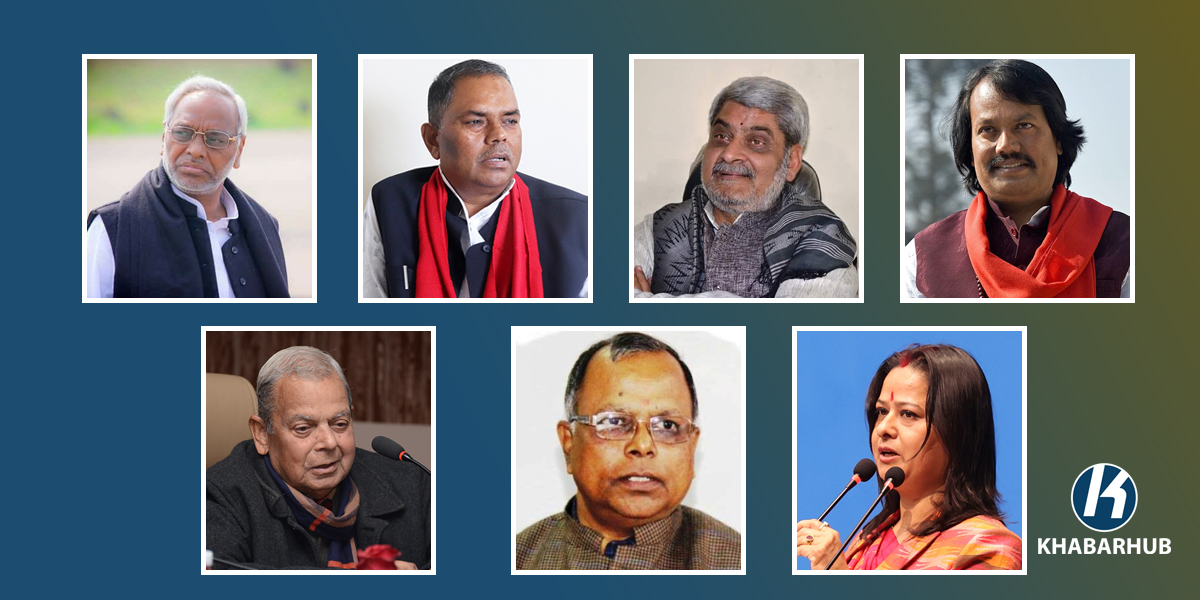
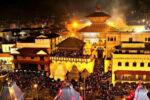
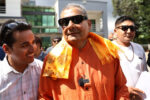
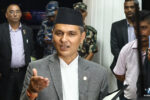
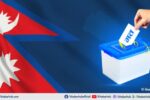
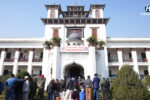

Comment